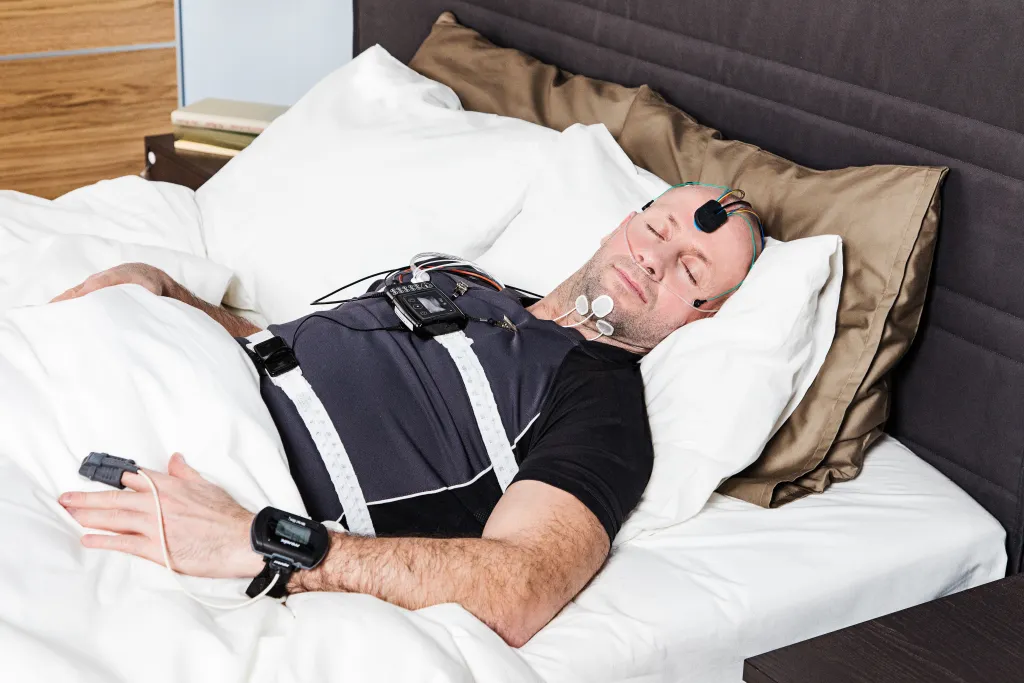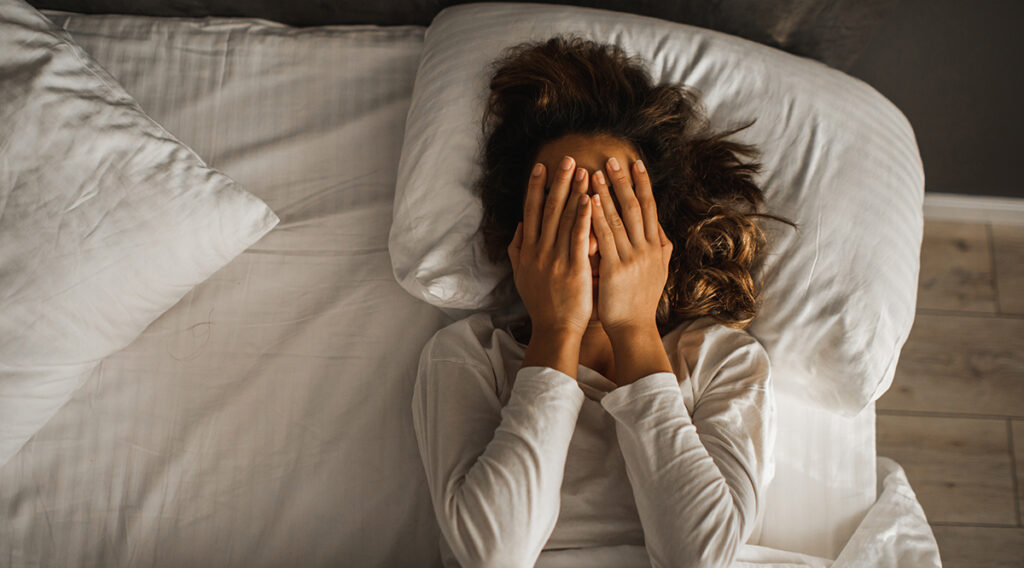Do you find yourself feeling tired and fatigued during the day, despite getting a full night’s sleep? Are you struggling with insomnia or other sleep-related issues? If so, you may benefit from a sleep study test. In this article, we will explore the importance of sleep assessments and how they can help you improve your sleep health.
What is a Sleep Study Test?
A sleep study test also known as polysomnography, is a diagnostic tool used to evaluate sleep patterns and assess various sleep disorders. It involves monitoring your brain waves, eye movements, muscle activity, heart rate, and breathing patterns while you sleep. By gathering this data, sleep specialists can gain valuable insights into your sleep quality and identify any underlying issues that may be affecting your restorative sleep cycles.
The Science Behind Sleep Study Tests
Sleep study tests rely on sophisticated equipment to monitor and record your body’s physiological changes throughout the night. Electrodes are placed on your scalp, face, chest, legs, and fingertips to measure brain activity, eye movements, muscle tone, oxygen levels, and heart rate. These measurements allow sleep specialists to detect abnormalities, such as sleep apnea, restless leg syndrome, or narcolepsy.
Furthermore, the data collected during a sleep study test is analyzed by trained sleep technologists and sleep medicine physicians. They meticulously review the recordings to identify patterns that may indicate specific sleep disorders or disturbances. This detailed analysis helps in formulating an accurate diagnosis and developing a tailored treatment plan to improve your sleep quality and overall well-being.
Different Types of Sleep Study Tests
There are different types of sleep study tests, depending on the specific sleep issue being evaluated. The most common type is an overnight, in-lab sleep study, where you spend a night at a sleep center while being monitored by specialized technicians. There are also home sleep tests available, which involve using portable devices to collect sleep data in the comfort of your own bed. Learn more about Home-Based Sleep Study: Convenient Solutions for Assessing Sleep Health visit at https://freeeye.net/home-based-sleep-study-convenient-solutions-for-assessing-sleep-health/.
In addition to overnight and home sleep tests, there are also split-night sleep studies where part of the night is used for diagnosis and the other part for titration of Continuous Positive Airway Pressure (CPAP) therapy for sleep apnea patients. This approach streamlines the diagnostic process and ensures that patients receive optimal treatment recommendations based on their individual needs and responses observed during the study.

The Importance of Sleep Assessments
Sleep plays a crucial role in our overall health and well-being. It is a time when our bodies go through essential processes for physical and mental restoration. Therefore, assessing the quality of our sleep is paramount to maintaining optimal health.
When we sleep, our bodies enter different stages, each serving a specific purpose. The first stage is light sleep, where we transition from wakefulness to sleep. This is followed by deeper stages where our bodies repair tissues, build bone and muscle, and strengthen the immune system. Rapid Eye Movement (REM) sleep, the final stage, is when our brains are most active, processing information and forming memories. A complete sleep cycle consists of these stages and typically lasts around 90 minutes, repeating throughout the night.
The Role of Sleep in Overall Health
Quality sleep is essential for our bodies to repair and regenerate. During sleep, our immune system strengthens, our muscles recover, and our mental processes consolidate memories and enhance learning. Without sufficient and restful sleep, we put our overall health at risk. Sleep assessments help identify any disruptions that may be compromising our body’s ability to rejuvenate.
Moreover, sleep is closely linked to our hormonal balance. Lack of sleep can disrupt the production of hormones that regulate appetite, leading to weight gain and metabolic issues. Chronic sleep deprivation has also been associated with an increased risk of developing conditions such as diabetes, heart disease, and depression. By conducting regular sleep assessments, individuals can monitor their sleep patterns and make necessary adjustments to improve their health outcomes. Learn more about diabetes click here.
Identifying Sleep Disorders through Assessments
Sleep disorders can have a significant impact on our daily lives. Conditions such as sleep apnea, insomnia, and restless leg syndrome can lead to daytime sleepiness, impaired cognitive function, and even cardiovascular problems. Sleep assessments serve as a diagnostic tool for identifying these disorders, enabling targeted treatment plans to improve sleep quality and overall well-being.
Furthermore, certain lifestyle factors can influence the quality of our sleep. Factors such as caffeine intake, screen time before bed, and irregular sleep schedules can disrupt our natural sleep-wake cycle. By incorporating information from sleep assessments with lifestyle modifications, individuals can work towards establishing healthy sleep habits and optimizing their well-being.
Preparing for a Sleep Study Test
If you are scheduled for a sleep study test, it is natural to feel a bit apprehensive. Understanding what to expect and how to prepare can help alleviate any concerns and ensure a successful assessment.
Before your sleep study test, it might be helpful to keep a sleep diary for a week or two. Note down your bedtime, wake time, and any naps taken during the day. This information can provide valuable insights to the sleep technician conducting your study. Additionally, try to maintain your regular sleep schedule in the days leading up to the test to ensure your body is in its typical sleep rhythm.
What to Expect During a Sleep Study
During an overnight sleep study test, you will arrive at the sleep center in the evening. A technician will guide you to a private room where the monitoring equipment will be set up. The sensors and electrodes will be attached to your body, but rest assured, the procedure is painless. Once you are settled, it’s time to sleep as naturally as possible. The sensors will collect data throughout the night while you rest.
The sleep technician will be monitoring your sleep patterns, breathing, heart rate, and other vital signs from a separate room. If you need assistance during the night, there will be intercom communication available to communicate with the technician. It’s essential to try and relax and sleep as you normally would at home to ensure the most accurate results.
Tips for a Successful Sleep Study Test
To ensure accurate results, it is important to follow some simple guidelines for a successful sleep study test. Avoid caffeine and alcohol in the afternoon and evening before your test. Keep your bedtime routine as close to your usual routine as possible, including any medications you usually take. Bring comfortable sleepwear and your regular pillow to help create a familiar sleeping environment.
Furthermore, try to limit screen time before bed as the blue light emitted by electronic devices can interfere with your ability to fall asleep. If you have any concerns or questions during the study, do not hesitate to communicate with the sleep technician. Remember, the goal of the sleep study is to gather valuable information to help diagnose and treat any potential sleep disorders effectively. Learn more about potential sleep disorders visit at https://my.clevelandclinic.org/health/diseases/11429-sleep-disorders.

Interpreting Sleep Study Test Results
After your sleep study test, the collected data will be analyzed by sleep specialists. The results will provide valuable insights into your sleep patterns and any potential sleep disorders. Understanding how to interpret these results can help you and your healthcare provider develop an effective treatment plan.
During a sleep study test, various sensors are used to monitor your body’s activity while you sleep. These sensors track your brain waves, heart rate, breathing patterns, and oxygen levels. By analyzing this data, sleep specialists can identify abnormalities that may indicate sleep disorders such as sleep apnea, insomnia, or restless leg syndrome.
Understanding Your Sleep Study Report
Your sleep study report will provide detailed information about various aspects of your sleep, including your sleep stages, respiratory events, and any disruptions. Sleep specialists will analyze these findings to determine if you have any underlying sleep disorders and make appropriate recommendations for treatment.
In addition to identifying sleep disorders, a sleep study report can also reveal lifestyle factors that may be affecting your sleep quality. Factors such as excessive caffeine consumption, irregular sleep schedules, or high levels of stress can contribute to poor sleep. Addressing these factors in conjunction with any diagnosed sleep disorders can lead to significant improvements in your overall sleep health.
Next Steps After a Sleep Study Test
Once you have received your sleep study test results, it is essential to discuss them with your healthcare provider. They will help you understand the implications of the findings and guide you towards appropriate next steps. Depending on the results, you may be advised to make lifestyle changes or receive medical interventions to improve your sleep health.
Follow-up appointments with your healthcare provider are crucial after a sleep study test to track your progress and make any necessary adjustments to your treatment plan. It’s important to communicate any changes in your symptoms or sleep patterns to ensure that you are receiving the most effective care. By actively participating in your treatment, you can work towards achieving better sleep and overall well-being.
Improving Sleep Health Post-Assessment
Now that you have a better understanding of your sleep patterns and any potential sleep disorders, it is time to take proactive steps towards improving your sleep health.
Ensuring adequate and restful sleep is crucial for overall health and well-being. Sleep plays a vital role in various physiological processes, including memory consolidation, immune function, and emotional regulation. Therefore, optimizing your sleep quality is essential for maintaining optimal physical and mental health.
Lifestyle Changes for Better Sleep
Simple lifestyle modifications can have a significant impact on your sleep quality. These may include establishing a consistent sleep schedule, creating a relaxing bedtime routine, optimizing your sleep environment, and managing stress effectively. Incorporating these changes into your daily life can promote better sleep and overall well-being.
Additionally, engaging in regular physical activity and maintaining a healthy diet can also contribute to improved sleep quality. Exercise helps regulate your circadian rhythm, making it easier to fall asleep and stay asleep. A balanced diet rich in nutrients like magnesium and tryptophan can support the production of sleep-regulating hormones, further enhancing your sleep health.
Medical Interventions for Sleep Disorders
In some cases, lifestyle changes may not be sufficient to address sleep disorders. Your healthcare provider may recommend medical interventions, such as continuous positive airway pressure (CPAP) therapy for sleep apnea or medication for insomnia. These treatments can help manage symptoms and improve sleep quality, ultimately leading to better health outcomes.
Furthermore, cognitive-behavioral therapy for insomnia (CBT-I) is a highly effective non-pharmacological treatment option for individuals struggling with persistent sleep difficulties. CBT-I focuses on addressing the underlying causes of insomnia, such as negative thought patterns and maladaptive behaviors, to promote healthy sleep habits and long-term improvements in sleep quality.
By understanding the importance of sleep assessments and the role they play in promoting better sleep health, you can take control of your well-being and ensure restful nights. If you are experiencing sleep-related issues, don’t hesitate to consult with your healthcare provider and explore the possibility of a sleep study test. Your journey to a rejuvenated and revitalized sleep starts with understanding your unique sleep patterns and needs.

